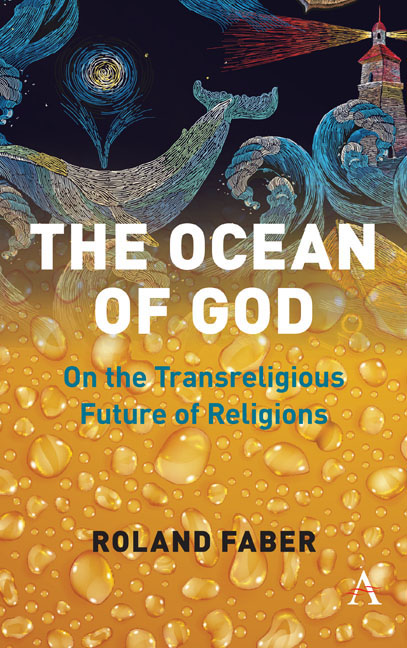Book contents
- Frontmatter
- Dedication
- Contents
- Introduction
- Part I Paradigms of Unity and Plurality
- Part II Negotiations of Multiplicity
- Chapter Six Convergences and Divergences: Juncture or Bifurcation?
- Chapter Seven Pluralism of Pluralisms?
- Chapter Eight Horizontal and Vertical Pluralism
- Chapter Nine An Experiment in Incompatibilities: Green Acre
- Chapter Ten The Mystery of Distinction and Unity
- Part III Transreligious Horizons
- Glossary
- References
- Index
Chapter Nine - An Experiment in Incompatibilities: Green Acre
from Part II - Negotiations of Multiplicity
Published online by Cambridge University Press: 09 July 2019
- Frontmatter
- Dedication
- Contents
- Introduction
- Part I Paradigms of Unity and Plurality
- Part II Negotiations of Multiplicity
- Chapter Six Convergences and Divergences: Juncture or Bifurcation?
- Chapter Seven Pluralism of Pluralisms?
- Chapter Eight Horizontal and Vertical Pluralism
- Chapter Nine An Experiment in Incompatibilities: Green Acre
- Chapter Ten The Mystery of Distinction and Unity
- Part III Transreligious Horizons
- Glossary
- References
- Index
Summary
We must not consider the separate waves alone, but the entire sea. We should rise from the individual to the whole. The spirit is as one great ocean and the waves thereof are the souls of men.
— ‘Abdu'l-BaháSwami Vivekananda and Bahá’u'lláh, as well as ‘Abdu'l-Bahá, are in interesting ways entangled through the story of the first World's Parliament of Religions, held at the Columbian Exhibition, Chicago, 1893, and its consequences, namely, a series of meetings in the wake of the Parliament over several decades at Green Acre in Maine. The central figure of these extraordinary multireligious encounters was Sarah Farmer, who presided over their development. She is the center of a tragic story in which the tensions between the two axes of pluralism unfolded and, hence, provides us with a concrete example or empirical display of their interaction.
The Parliament itself was an achievement. It was the first time in (at least western) history that a gathering brought together representatives not only from the host country, mostly recruited and organized by Christian denominations and nonconformist spiritual alternative movements, but from diverse instantiations of Buddhism, Hinduism, Daoism, Confucianism, Jainism and many other traditions and movements, such as that of Theosophy. They met in a free arena in a spirit of reconciliation and the desire for religious peace, including in their hope for multireligious conviviality among the whole of humanity. History is replete with attempts of religious conversations, ideas for convivial recognition and conceptualizations of potential interreligious discourses. A few examples may suffice. In fifteen-century Italy, Cardinal, philosopher, mystic and peacearbitrator Nicolas of Cusa imagined a gathering of religions in amicable conversations regarding their diversity and the truth of their multiplicity in his writing De Pace Fidei. He reflected from an apophatic character of the Godhead beyond any affirmations, but all-relationally immanent in the world, on the notion that diverse traditions were not different as “religions,” since there is only one religion of God, but different “rites,” meaning, practically (ethnically, culturally) differing ritual modes of worshipping the one true God. Yet his imagination was playing out only in “heaven,” an ideal space, the imaginary perfect state (from the perspective of God's perfection), a potential unrealized in this world. His gathering was only theoretical and anticipatory.
- Type
- Chapter
- Information
- The Ocean of GodOn the Transreligious Future of Religions, pp. 103 - 110Publisher: Anthem PressPrint publication year: 2019



